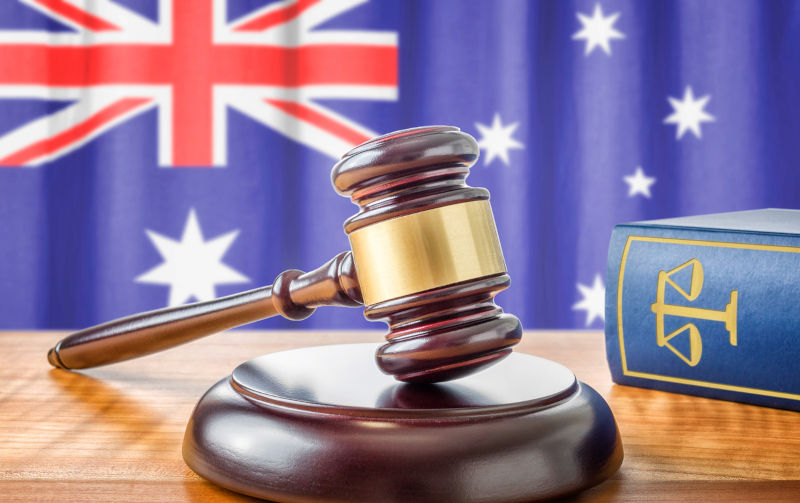An unholy conspiracy between the Labor Party and the Liberal-National Coalition to preserve Australia’s century-old two-party system seems certain to fail. It is most unlikely to survive multiple challenges in the High Court. But in the unlikely event that if it does gain constitutional approval, it will be overturned by voters.
For more than a decade, the two major parties have seen their combined share of the national vote fall away. At the last federal election just on a third of all voters gave their primary votes to independents or minor parties.
Until that election, the Labor and Liberal-National Coalition weren’t too concerned about their falling share of primary (first preference) votes. Thanks to preferential voting, votes that were directed to minor parties generally finished up supporting either Labor or the Coalition as preferences for other candidates were distributed.
The problem, however, was that in 2022 in many electorates the Labor and Coalition candidates received fewer primary votes than an independent or minor party candidate and it was the major party candidates who were eliminated and whose preferences were distributed.
Labor won 77 seats and the Coalition 58, with the remaining 16 seats going to minor parties and independents (including six Teals), the largest contingent of MPs not aligned with Labor or the Coalition since the two-party system emerged more than 100 years ago.
If the trend away from the major parties was to continue — as seems likely — the ability of either to form majority government could be expected to end, either at the coming election or soon after.
In terms of structural changes to the electoral system, there was little more that could be done to preserve the status quo. But one change could help – boosting the financial resources available to Labor and the Coalition while reducing those that independents and smaller parties could access. At the same time, the amount that could be spent on election campaigns would be limited in such a way as to allow the major parties to outspend independents and smaller parties.
Much of the additional funding for the major parties would come from the public purse.
The public justification for the legislation that the government and Opposition forced through Parliament — opposed by independents and smaller parties — was the very real threat to the democratic process seemingly posed by the outrageously large sums spent by Clive Palmer trying to get his candidates elected to the federal parliament.
No-one could match the $100 million or so that Palmer spent (through his various companies) at each of the last two federal elections, to support his own party candidates. The use of such wealth must have an impact on elections – though no-one knows, or can know, how significant that impact might be. Did his campaigning against Labor in the 2019 elections materially affect its vote and help the return of the Morrison Government? We do know that in 2022 it resulted in one of Palmer’s candidates being elected to the Senate.
That this attempt by Labor and the Coalition to limit donations and spending (and provide benefits to those who have some success at the election) might give rise to a constitutional challenge is a possibility that only arose in 1992, when the High Court ruled on a previous attempt by a federal government to limit spending on federal elections and ban political adverting in electronic media.
In two related cases, the Court effectively created a right to freedom of political communication. This was not a written guarantee of freedom of the press or speech, as in the US constitution, but a right that was implied by the provisions of the Australian constitution that people should be able to have a free and informed vote. This was to be implied from those parts of the constitution that required parliament should be directly chosen by the people and the constitution amended only with the approval of the people voting at a referendum.
In subsequent decisions, the court has explained that the right to communicate isn’t limited to voters, but extends to entities communicating with voters, for example, through advertising. But through its decisions the court explained that any law restricting political communications would be invalid unless the law was reasonable, appropriate and adapted to serve a legitimate end in a manner compatible with the constitutional system of representative and responsible government.
Is freezing out minor parties and independents — the real aim of Labor and the Coalition — a legitimate end? The governing duo of the past century certainly think so (though of course, they cannot admit that publicly), but I doubt that the High Court justices will agree – no matter how much the major parties try to justify, and to disguise, what they are trying to achieve.
But even if some of the elements of the package to restrict donations and election spending are not eviscerated by the High Court, it probably won’t matter. Voters are turning away from the major parties and complaints by the Teals (in particular) and other independents and small parties are likely to feature in their election campaigning and trigger a positive response from voters who aren’t firmly committed to the major parties.
Some recent polling suggests that a significant proportion (perhaps a third) of voters who express support for one or other of the major parties have indicated that they could change their minds. These are voters who could be turned off by the major parties and provide the Teals and other independents with a further boost in their numbers in Parliament.
Fortunately, the donations and spending limits that Parliament approved will not come into effect until after the coming elections. If neither Labor nor the Coalition wins an outright majority, the crossbench is certain to demand that the donations/spending law be changed to make it more democratic and fairer for smaller parties and independent candidates.
The views expressed are solely those of the author and may or may not reflect those of Pearls and Irritations.
David Solomon is a former legal and political correspondent. He has degrees in Arts and Law and a Doctorate of Letters. He was Queensland Integrity Commissioner 2009-2014.

